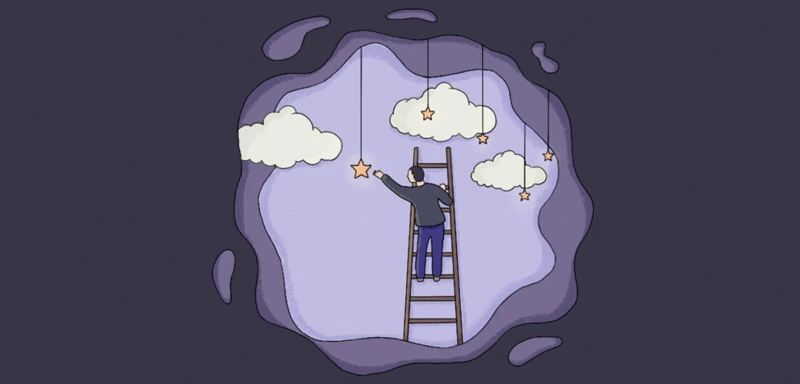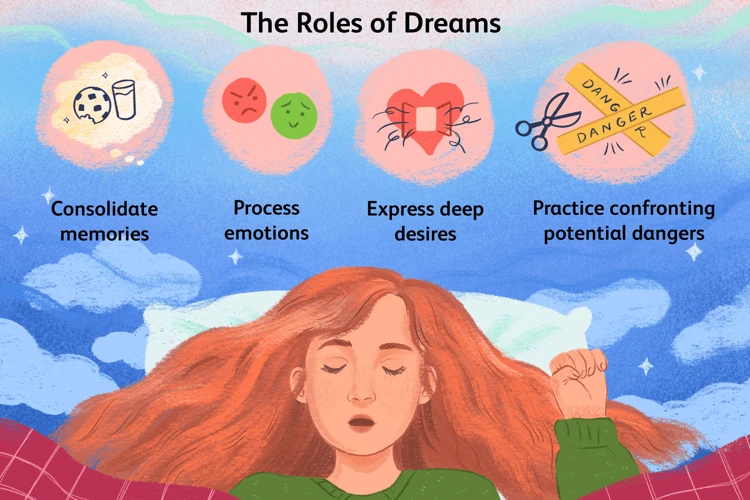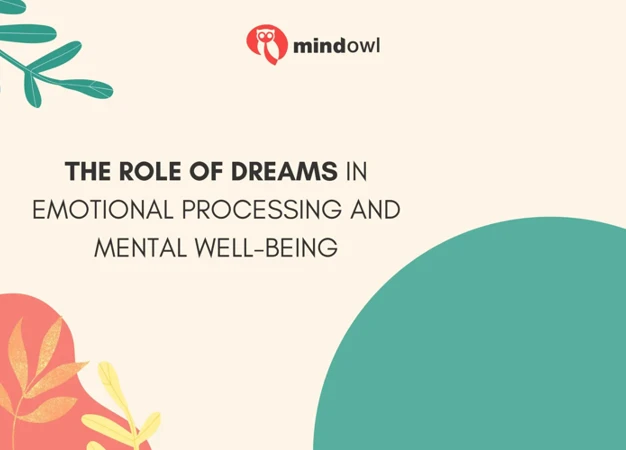Imagine a world where the mind can wander freely, exploring the depths of its own subconscious. In this ethereal realm, dreams become more than just fleeting glimpses of the night; they become powerful tools that influence our mental and emotional well-being. The enigmatic art of dream interpretation has fascinated humanity for centuries, unlocking secrets hidden deep within our psyche. Beyond mere symbolism, dreams have the remarkable ability to process emotions, heal trauma, and even enhance problem-solving skills. In this article, we will delve into the captivating influence of dreams on our mental and emotional well-being, uncovering their profound impact and providing practical tips to harness their power. So, take a moment to close your eyes, open your mind, and embark on a mesmerizing journey into the world of dreams.
The Subconscious Mind and Dreams

The subconscious mind is a mysterious and fascinating realm that lies beneath the surface of our conscious awareness. Within the depths of this hidden domain, dreams take shape and offer glimpses into our innermost thoughts, desires, and fears. As we sleep, our minds engage in a complex process of symbolism and imagery, creating a rich tapestry of narratives that hold profound meaning. The interpretation of dreams, often steeped in ancient wisdom and modern psychology, allows us to unravel the messages encoded within these enigmatic visions. Dreams serve as a bridge between our conscious and unconscious selves, providing insights into our emotions, experiences, and unresolved conflicts. They can also play a crucial role in the processing of emotions, helping us navigate through life’s challenges and facilitating psychological healing. To uncover the profound influence of dreams on our mental and emotional well-being, let us delve deeper into the realm of the subconscious mind. Link: Dreams and the Unconscious Mind
1. Interpretation of Dreams
Dreams have long been a source of fascination for humanity, and their interpretation has held a prominent place in various cultures and belief systems throughout history. The process of interpreting dreams involves analyzing the symbols, imagery, and narratives that unfold during sleep. These symbols are believed to be representations of the dreamer’s unconscious thoughts, desires, and emotions. Dream interpretation can provide valuable insights into one’s psyche, offering a deeper understanding of their inner world.
There are various approaches to dream interpretation, ranging from psychological perspectives to spiritual and cultural interpretations. In psychology, the theories of Sigmund Freud and Carl Jung have greatly influenced our understanding of dreams. Freud believed that dreams were a gateway to the unconscious mind, containing repressed thoughts and wishes that were disguised in symbolic form. His work emphasized the importance of uncovering the hidden meanings behind dream symbols and analyzing the latent content.
Similarly, Carl Jung expanded on Freud’s theories and introduced the concept of the collective unconscious. According to Jung, dreams are not only personal but also contain elements that are shared among all individuals. He believed that symbols in dreams connect to archetypal images and universal themes, holding meaning beyond the individual’s personal experiences.
Dream analysis can also provide a means of self-discovery and personal growth. By exploring the symbolism and themes within their dreams, individuals can gain insights into aspects of their personality, inner conflicts, and unresolved emotions. This process can lead to increased self-awareness, allowing individuals to make positive changes in their lives.
It is important to note that dream interpretation is subjective and highly individualized. While there are general symbols and archetypal meanings that can be helpful guides, the true interpretation of a dream ultimately rests with the dreamer. External resources, such as books, online guides, or professional dream analysts, can provide assistance and guidance in understanding dream symbolism. However, the most powerful insights often come from within, as the dreamer explores their own unique experiences and associations.
The interpretation of dreams is an intricate and captivating practice that holds the key to unlocking the hidden depths of the subconscious mind. Through the analysis of dream symbols, narratives, and emotions, individuals can gain valuable insights into their inner world and embark on a journey of self-discovery and personal growth. Link: Understanding Dream Interpretation for Self-Discovery
2. Role of Dreams in Processing Emotions
Dreams play a crucial role in the intricate process of processing emotions. When we dream, our subconscious mind becomes the canvas on which our deepest emotions are painted. This allows us to explore and confront the complex tapestry of our feelings, both positive and negative, in a safe and non-judgmental space. Our dreams can provide a cathartic release, allowing us to express and process intense emotions that we may not be fully aware of in our waking life. Through vivid imagery, symbolism, and powerful metaphors, dreams provide a means for our unconscious mind to communicate with our conscious self, unveiling emotional patterns, unresolved conflicts, and hidden desires. By delving into the landscape of our dreams, we can gain valuable insights into our emotional state and begin the journey towards emotional healing and self-discovery. It is through this process of dreams and their role in processing emotions that we can unlock the transformative power of our subconscious. To learn more about how dreams contribute to psychological healing, please visit Role of Dreams in Psychological Healing.
The Influence of Dreams on Mental Well-being

Dreams have a profound influence on our mental well-being, offering unique opportunities for self-reflection and introspection. One of the most powerful aspects of dreams is their ability to provide a deeper understanding of ourselves and our experiences. Dream analysis, whether through personal reflection or with the guidance of a therapist or dream expert, allows us to explore the hidden recesses of our psyche, uncovering patterns, emotions, and unresolved conflicts that may impact our mental well-being. Through this deep introspection, we gain insights into our fears, desires, and motivations, helping us make sense of our thoughts and actions. Dreams can facilitate problem-solving and creativity enhancement. During sleep, our brains continue to work on unresolved issues, presenting us with innovative solutions and fresh perspectives upon waking. This creative problem-solving aspect of dreams can be harnessed to tackle challenges in our waking lives, promoting mental clarity, and enhancing our overall well-being. Lastly, dreams serve as a powerful tool for emotional healing and trauma processing. They create a safe space for us to relive and process difficult experiences, allowing for emotional release and catharsis. Through dreams, we can reframe and reconstruct past events, finding closure and building resilience. The influence of dreams on mental well-being is truly remarkable, offering a pathway to self-discovery, problem-solving, and emotional healing.
1. Dream Analysis for Self-Reflection
Dream analysis is a powerful tool for self-reflection, allowing individuals to gain a deeper understanding of their inner world. By examining the symbolism, themes, and emotions present in dreams, we can unravel the hidden aspects of our psyche and uncover insights into our thoughts and emotions. Dream analysis involves reflecting on the various elements of a dream, such as characters, settings, and events, and interpreting their significance in relation to our own lives. This process can provide valuable clues about our desires, fears, unresolved conflicts, and even our subconscious beliefs. Through self-reflection, we can gain a better understanding of our own motivations, behaviors, and patterns of thinking. By analyzing dreams, we unlock a gateway to our subconscious mind, where untapped wisdom and self-awareness reside. This practice not only enhances our mental well-being but also allows for personal growth and self-discovery. So, take a moment to delve into the depths of your dreams, and embark on a journey of self-reflection and understanding.
2. Problem-solving and Creativity Enhancement
Dreams have long been recognized as a powerful tool for problem-solving and creativity enhancement. When we enter the realm of sleep, our minds are freed from the constraints of logic, allowing for the exploration of unconventional ideas and solutions. In this altered state, our thoughts can leap across boundaries and construct new connections that may not have been apparent in our waking life. Dreams often present us with vivid scenarios that challenge our preconceived notions and push the boundaries of our imagination. This imaginative process can spark innovative thinking and provide fresh perspectives on real-life problems. Additionally, dreams can simulate scenarios and offer a safe space for experimentation, where we can explore different possibilities without the fear of failure or judgment. By engaging in creative problem-solving within our dreams, we can tap into our subconscious resources and unlock hidden insights that may elude us during our conscious hours. As we awaken from these dream experiences, we often carry with us a renewed sense of inspiration and a reservoir of ideas that can be applied to various aspects of our lives. The link between dreaming and problem-solving has been studied extensively, with researchers suggesting the idea of “dream incubation” – intentionally focusing on a problem or question before sleep, and then allowing the dream state to provide creative solutions. By nurturing our connection with dreams and actively seeking their guidance, we can harness their potential to enhance our problem-solving abilities and nurture our creativity.
3. Emotional Healing and Trauma Processing
Emotional healing and trauma processing represent a powerful aspect of dreams that can significantly impact our mental and emotional well-being. When we experience distressing or traumatic events, our minds may struggle to fully process and integrate these experiences. Dreams provide a unique opportunity for our subconscious to work through these emotions and begin the healing process. While we sleep, our minds have the ability to revisit and reframe these difficult experiences, allowing us to confront and process the associated emotions in a safe and controlled environment. Through dream analysis and reflection, we can gain valuable insights into the unresolved emotional wounds that lie dormant within us. Dreams can serve as a catalyst for healing, enabling us to release pent-up emotions, foster acceptance, and ultimately move towards a state of emotional well-being. These dream processes can be particularly beneficial for individuals who have experienced trauma, as they provide a platform for emotional release and the gradual integration of the traumatic experience into our larger life narrative. By acknowledging and working with our dreams, we can embark on a journey of healing and growth, allowing us to regain a sense of emotional balance and resilience.
The Impact of Dreams on Emotional Well-being

Dreams have a profound impact on our emotional well-being, serving as a gateway to the depths of our innermost emotions. They offer a unique channel for emotional release and catharsis, allowing us to process and express difficult feelings that may be suppressed in waking life. Dreams can serve as a safe space for us to confront and explore our fears and anxieties, providing valuable insights into our subconscious desires and fears. Through dreams, we may gain a deeper understanding of complex emotions that we struggle to fully grasp in our waking hours. Additionally, dreams have the remarkable ability to reinforce positive emotions and strengthen resilience. They can provide us with a sense of hope, comfort, and inspiration, reminding us of our innate capacity for joy and happiness. By tapping into the transformative power of dreams, we can enhance our emotional well-being and embark on a journey of self-discovery and growth.
1. Emotional Release and Catharsis
Dreams have a remarkable ability to provide emotional release and act as a form of catharsis. When we experience intense emotions such as stress, anxiety, or sadness in our waking lives, these emotions can manifest in our dreams. By processing these emotions in the dream state, we are given a safe and controlled space to release pent-up feelings and find a sense of relief. Dreams can allow us to confront and explore challenging emotions that we may struggle to confront in our conscious lives. It’s not uncommon to wake up from a dream feeling a sense of emotional release, as if a weight has been lifted. This cathartic experience can provide a sense of healing and contribute to our overall emotional well-being. Through dreams, we have the opportunity to express, acknowledge, and work through emotions that may be deeply rooted within us, leading to a greater sense of emotional balance and harmony in our daily lives.
2. Insight into Unconscious Desires and Fears
Dreams have the remarkable ability to provide us with valuable insights into our unconscious desires and fears. When we sleep, our minds are freed from the constraints of conscious thought, allowing our deepest desires and fears to come to the forefront. Through the symbolism and narrative of dreams, we can gain a deeper understanding of the aspects of our psyche that may be hidden from our conscious awareness. Dreams can bring forth repressed desires, unexpressed emotions, and unresolved conflicts that may be influencing our waking lives without our knowledge.
For example, a recurring dream about being chased may indicate a fear or sense of vulnerability in our waking life that we have been suppressing. Similarly, dreams about flying or being in control may signify a sense of empowerment or a desire for freedom that we may not be consciously aware of. By paying attention to the themes, symbols, and emotions that arise in our dreams, we can tap into the underlying desires and fears that shape our thoughts, behaviors, and relationships.
By gaining insight into our unconscious desires and fears, we can take steps towards personal growth and self-awareness. Dreams can act as a mirror, reflecting aspects of ourselves that we may not fully acknowledge. By embracing and understanding these hidden aspects, we can begin to address any inner conflicts or unmet needs that may be hindering our emotional well-being. Through dream analysis and exploration, we can embark on a journey of self-discovery, uncovering the depths of our psyche to live a more fulfilling and authentic life.
It is important to note that dream interpretation is subjective and can vary greatly from person to person. While there are common symbols and archetypes that appear in dreams, their meanings are highly personal and can only truly be understood within the individual context. Engaging in practices such as keeping a dream journal, reflecting on dream narratives, and seeking guidance from professionals versed in dream analysis can help us unlock the mysteries of our unconscious desires and fears, leading to greater self-awareness and emotional well-being. By embracing the wisdom and guidance of our dreams, we can harness their transformative power and embark on a journey of self-discovery and personal growth.
3. Reinforcing Positive Emotions and Strengthening Resilience
Positive emotions play a vital role in our overall well-being, and dreams have the power to reinforce these emotions and strengthen our resilience. During sleep, our minds have the ability to process and integrate positive experiences, allowing them to become deeply ingrained in our psyche. This process can lead to a sense of emotional upliftment and a more positive outlook on life. Dreams often serve as a reminder of the good things in our lives, highlighting moments of joy, love, and success. By reliving these positive experiences in our dreams, we are reminded of the emotions associated with them, which can have a lasting impact on our mental well-being when we awake.
Dreams can also serve as a source of inspiration and hope, providing us with a vision of the future we desire. Visualizing positive outcomes and achievements in our dreams can fuel our motivation and determination, driving us to pursue those goals in our waking life. This reinforcement of positive emotions and aspirations can empower us to overcome challenges, setbacks, and obstacles with a renewed sense of resilience and optimism.
To harness the power of dreams in reinforcing positive emotions and strengthening resilience, it can be helpful to pay attention to the uplifting themes and experiences within our dreams. Keeping a dream journal can aid in identifying recurring positive elements or symbols, allowing us to consciously focus on these aspects and cultivate a more positive mindset in our waking life. Additionally, incorporating practices such as meditation or visualization techniques before sleep can enhance the likelihood of positive dreams and emotions. By actively engaging with our dreams and intentionally seeking out positive experiences within them, we can leverage their influence to reinforce positive emotions, cultivate resilience, and create a more fulfilling and optimistic outlook on life.
Dreams as Indicators of Mental and Emotional Health

Dreams have long been recognized as powerful indicators of our mental and emotional health. They serve as windows into our subconscious, offering valuable insights into our thoughts, feelings, and overall well-being. By analyzing the content and symbolism of our dreams, we can gain a deeper understanding of our inner workings and uncover hidden patterns and conflicts that may be affecting our mental health.
One way in which dreams act as indicators of mental and emotional health is through the manifestation of recurring dreams. These are dreams that occur repeatedly, often depicting similar themes or situations. Recurring dreams can be a sign of unresolved issues or emotional distress that our subconscious is trying to bring to our attention. For example, a recurring dream of being chased may reflect underlying anxiety or fears that need to be addressed and resolved.
Another aspect of dreams as indicators of mental and emotional health is the presence of vivid and intense dreams. These dreams are often emotionally charged, evoking strong feelings such as fear, sadness, or joy. The intensity of these dreams can be a reflection of the intensity of our emotions in waking life. For instance, a dream filled with fear and panic may indicate high levels of stress or anxiety that require attention and management.
The overall quality of our dreams can provide clues about our mental and emotional well-being. Dreams that are peaceful, positive, and filled with pleasant experiences may indicate a state of contentment and fulfillment in our lives. On the other hand, disturbing or unsettling dreams may suggest underlying emotional turmoil or unresolved conflicts.
It is important to note that dreams should not be interpreted in isolation but rather in conjunction with our waking experiences and feelings. While dreams offer insights into our mental and emotional state, they are not absolute indicators of psychological disorders or issues. Professional guidance and self-reflection are crucial in understanding and interpreting the messages conveyed by our dreams accurately.
Dreams serve as powerful indicators of our mental and emotional health. By paying attention to recurring dreams, the intensity of our dreams, and the overall quality of our dream experiences, we can gain valuable insights into our inner world. Understanding and interpreting our dreams can provide a deeper understanding of ourselves and help guide us towards optimal mental and emotional well-being.
Practical Tips for Harnessing the Power of Dreams
Harnessing the power of dreams requires a conscious effort to engage with and understand the messages they hold. One practical tip for unlocking the wisdom of dreams is to keep a dream journal. By recording our dreams upon waking, we give them a tangible presence in our waking lives, allowing us to reflect on their significance later. Exploring dream symbols and meanings is another valuable practice. This involves delving deeper into the symbolism and archetypes present in our dreams, connecting them with our own personal experiences and emotions. The practice of lucid dreaming and active dream exploration can be transformative. Lucid dreaming involves becoming aware that you are dreaming while still in the dream state, allowing you to actively engage and manipulate the dream content. This can provide a sense of empowerment and control, facilitating deeper insights and emotional healing. By implementing these practical tips, we can tap into the power of our dreams and unlock their potential to enhance our mental and emotional well-being.
1. Keeping a Dream Journal
Keeping a dream journal is a powerful and practical way to harness the power of dreams and gain valuable insights into our mental and emotional well-being. By recording our dreams immediately upon waking, we capture the essence of our dream experiences and ensure that they are not forgotten. The act of writing down our dreams serves as a bridge between the subconscious and conscious mind, allowing us to reflect on our dreams in a waking state. Through this process, patterns, themes, and symbols may emerge, offering deeper understanding and aiding in self-reflection. Additionally, a dream journal helps us track recurring dreams or identify certain triggers that may influence our dream content. It also enables us to take note of any emotions, sensations, or vivid imagery that are present during the dream. By consistently keeping a dream journal, we create a treasure trove of information that can be used to explore further the depths of our psyche and unravel the mysteries of our dreams. The act of writing can be cathartic, providing a sense of release and allowing us to process our emotions more effectively. So grab a pen and journal and embark on a transformative journey through the realm of dreams!
2. Exploring Dream Symbols and Meanings
Dreams are a gateway to a realm where symbols and meanings merge, offering a glimpse into the depths of our subconscious. Exploring dream symbols and their meanings can be a powerful tool for self-discovery and personal growth. To embark on this journey of exploration, one must develop the ability to decipher the hidden messages within their dreams. It involves diligently recording dreams in a journal, noting down every intricate detail, from the people and objects that appear to the emotions and sensations experienced. By analyzing these elements, patterns and recurring symbols may start to emerge. For example, seeing a snake in a dream might symbolize transformation or hidden fears. However, it is important to remember that dream symbols can be highly personal, and their meanings can vary from individual to individual. One useful approach is to consult dream dictionaries or symbolism guides as a starting point for interpretation. These resources provide a wealth of potential meanings for common dream symbols. It is crucial, however, to balance these interpretations with personal reflection and introspection, as the true significance of a symbol can only be fully understood by the dreamer. Engaging in open-ended reflection and dialogue with trusted friends or therapists can also help shed light on the possible interpretations of dream symbols. The process of exploring dream symbols and meanings is a continuous and ever-evolving journey, as dreams possess a unique language that is deeply rooted in each person’s psyche. By delving into the rich tapestry of symbolism woven within our dreams, we can gain a deeper understanding of ourselves and the hidden aspects of our psyche. So, grab your dream journal, sharpen your symbolic discernment, and embark on a fascinating exploration of your dream world.
3. Lucid Dreaming and Active Dream Exploration
Lucid dreaming and active dream exploration offer fascinating avenues for harnessing the power of dreams and delving deeper into their meaning and potential. Lucid dreaming refers to the state of awareness within a dream where the dreamer recognizes that they are dreaming. This heightened state of consciousness opens up incredible opportunities for intentional exploration and control within the dream world. By becoming aware that one is dreaming, individuals can actively influence the dream narrative, engage with dream characters, and even manipulate the dream environment. This practice not only provides a sense of empowerment and excitement but also enables individuals to confront fears, practice new skills, and unlock their creativity. Lucid dreaming can be used as a tool for self-reflection and personal growth. By deliberately entering into lucid dreams, individuals can engage in active dream exploration, seeking answers to their questions, unraveling subconscious patterns, and gaining valuable insights into their thought processes and emotions. Techniques such as reality checks, dream journaling, and reality testing can aid in cultivating lucid dreaming skills. With dedication and practice, lucid dreaming and active dream exploration can become powerful tools for self-discovery and transformation in the realm of dreams.
Conclusion
In conclusion, dreams have an undeniable influence on our mental and emotional well-being. Through dream analysis, we gain valuable insights into our subconscious thoughts, fears, and desires. The interpretation of dreams allows for self-reflection and helps us make sense of our experiences. Additionally, dreams play a vital role in problem-solving and creativity enhancement, allowing us to tap into our unconscious mind’s vast potential. Dreams also contribute to emotional healing and trauma processing, providing a safe space to confront and release pent-up emotions.
On the emotional front, dreams serve as a channel for emotional release and catharsis. They allow us to express and process complex emotions that may be difficult to articulate consciously. Dreams also offer a window into our unconscious desires and fears, providing insight into aspects of ourselves that may need attention or resolution. Furthermore, dreams can reinforce positive emotions and strengthen resilience by showcasing scenarios that evoke joy, confidence, and resilience.
It is important to recognize that dreams can also serve as indicators of our mental and emotional health. Frequent nightmares or recurring negative dream themes may signal underlying stress, anxiety, or unresolved trauma. By paying attention to these dream patterns, we can take steps to address our emotional well-being and seek support if needed.
To harness the power of dreams, keeping a dream journal is highly recommended. This practice allows us to record and analyze our dreams, identifying recurring symbols or patterns that may hold significant meaning in our lives. Exploring dream symbols and their meanings can offer further insights into our own psyche.
Additionally, techniques such as lucid dreaming and active dream exploration provide opportunities to engage with our dreams consciously. Lucid dreaming allows us to become aware that we are dreaming and even influence the dream’s course. This practice can be a powerful tool for self-discovery and personal growth.
In summary, dreams are not just fleeting experiences of the night. They offer profound insights into our mental and emotional well-being. By understanding and leveraging the power of dreams, we can gain a deeper understanding of ourselves, navigate life’s challenges, and enhance our overall well-being. So, let your dreams guide you on this mesmerizing journey of self-discovery and exploration.
Frequently Asked Questions
What is the significance of dreams in psychology?
Dreams hold significant importance in psychology as they provide a window into the unconscious mind and offer valuable insights into our thoughts, emotions, and experiences.
Can dreams help with self-reflection?
Absolutely! Dreams can serve as a powerful tool for self-reflection. By analyzing and interpreting our dreams, we gain a deeper understanding of ourselves and can uncover hidden desires, fears, and unresolved issues.
Do dreams have the ability to solve problems and enhance creativity?
Yes, dreams have the remarkable ability to enhance problem-solving skills and stimulate creativity. During REM sleep, our brains engage in unique processes that can lead to innovative ideas and solutions to challenges we may be facing.
Can dreams aid in emotional healing?
Indeed, dreams can play a vital role in emotional healing. They provide a safe space for processing and releasing deep-seated emotions, trauma, and unresolved conflicts, leading to a greater sense of well-being and healing.
What is the connection between dreams and catharsis?
Catharsis, the release of pent-up emotions, can often be achieved through dreams. Dreams allow us to express and confront our emotions in a symbolic and therapeutic way, providing a sense of relief and emotional release.
How can dreams provide insight into unconscious desires and fears?
Dreams act as a gateway to our unconscious mind, revealing desires, fears, and patterns of behavior that may be hidden from our conscious awareness. Analyzing and interpreting these dream symbols can offer valuable insights into ourselves and our motivations.
Can dreams reinforce positive emotions and promote resilience?
Yes, dreams have the power to reinforce positive emotions and promote resilience. They can provide uplifting experiences and scenarios that boost our mood, strengthen our positive mindset, and enhance our ability to cope with challenges.
Can dreams indicate mental and emotional health?
Indeed, dreams can act as indicators of our mental and emotional health. Disturbing or recurring dreams may signify unresolved issues, while pleasant dreams can be a sign of overall well-being and emotional balance.
How can keeping a dream journal be beneficial?
Keeping a dream journal allows us to capture and explore the intricacies of our dreams. By recording our dreams on a regular basis, we can identify patterns, symbols, and recurring themes, aiding us in the interpretation and understanding of our dreams.
What is lucid dreaming and how can it be practiced?
Lucid dreaming is the state of being aware that one is dreaming while still in the dream. With practice, techniques such as reality checks, meditation, and maintaining a dream journal, one can increase the likelihood of experiencing lucid dreams and actively engage in dream exploration.








